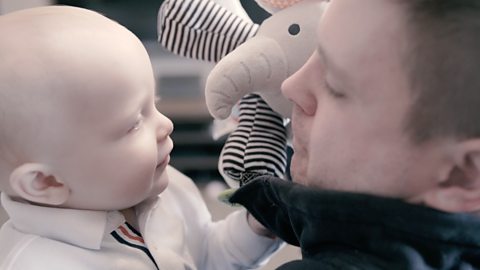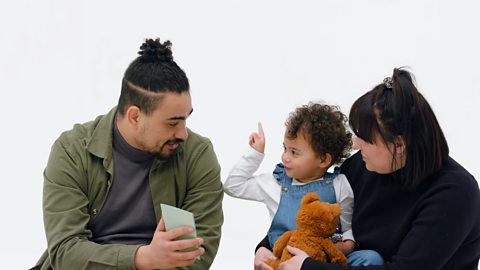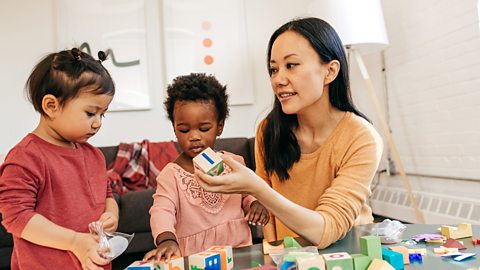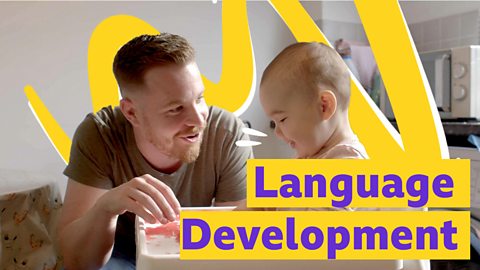Tiny Happy People has a lot to offer speech and language therapists when it comes to demonstrating to families the best ways of talking to and interacting with their children.
Tiny Happy People is the BBC's dedicated website for parents of children aged 0-4. We aim to help parents understand the role they play in their child's language development and build their confidence in talking to and interacting with their children from bump to preschool.
Tiny Happy People films can be used by Speech and Language Therapists and SLT students when setting individual or group targets for children who have been referred to their service, both to explain the reasoning behind the target and to demonstrate how an activity could be carried out. Each of the activities has been given an age based on typical developmental stage, however, these can be used with children of different ages at your discretion based on the target behaviour you're looking to address.
Below are some of the best places for speech and language therapists to start exploring the site by different target behaviours as selected by speech and language therapist Janet Cooper. To explore different speech and language target areas, please click the appropriate heading.
Early interaction and pre-verbal skills
Turn-taking
Learning to take turns is an important skill for children to learn in order to become used to the back and forth of conversation.
Tips for parents on turn-taking. videoTips for parents on turn-taking
Dr Guddi Singh explains why turn-taking is important as a pre-cursor to conversation.
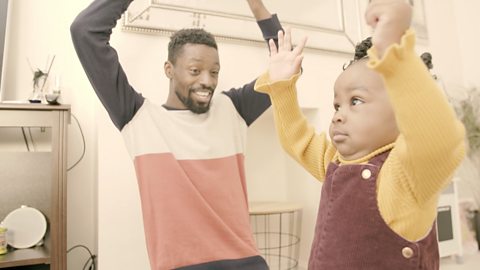
Demonstrations of simple turn-taking games. videoDemonstrations of simple turn-taking games
A film showing different simple turn-taking games between parents and toddlers.
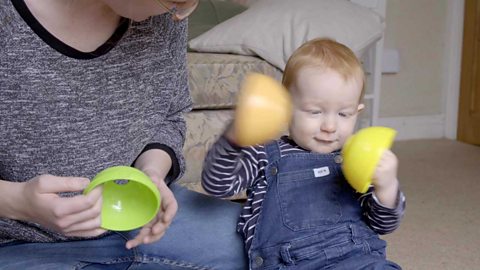
Taking turns with a ball
A film showing a simple ball passing game between parent and child.
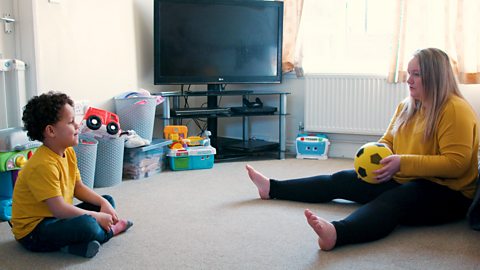
Shared attention
Peek-a-boo for joint attention. videoPeek-a-boo for joint attention
A film modelling how peek-a-boo can be used to build joint attention.
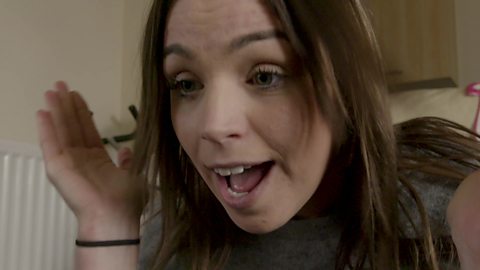
Object permanence
Object permanence is the idea that when things disappear from your child's sight, they still exist.
Symbolic play
Why is imaginative play so great for children?
An article explaining the benefits of imaginative play to parents.
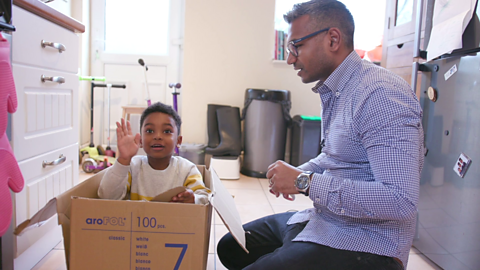
Early pretend play with a teddy. videoEarly pretend play with a teddy
This films shows parents how to encourage early pretend play using a teddy bear to model bedtime routines.
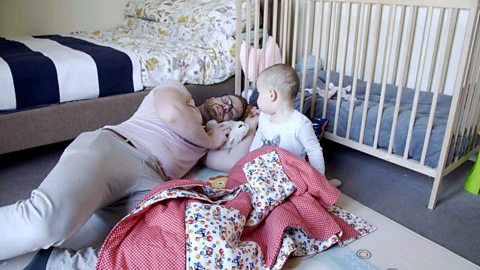
Playing make believe. videoPlaying make believe
A film showing parents how to encourage their child through sequential symbolic play.
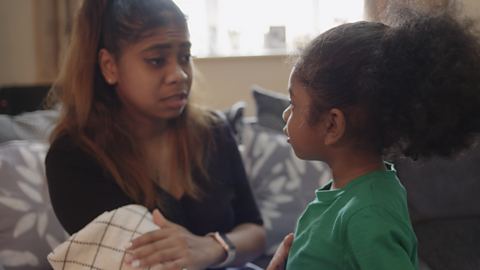
Listening and attention
Shared attention
Why is tuning into baby so important? videoWhy is tuning into baby so important?
A film demonstrating the importance of shared attention to parents through an experiment. Can be used to help explain joint attention as a target for speech and language.
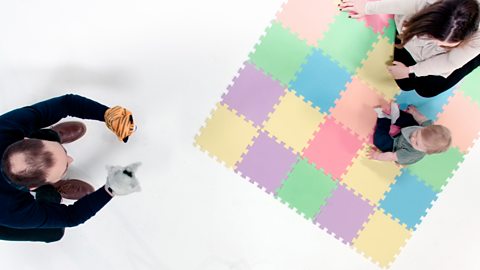
Joint attention and everyday routines. videoJoint attention and everyday routines
Joint attention can be easily built into routines like putting out laundry.
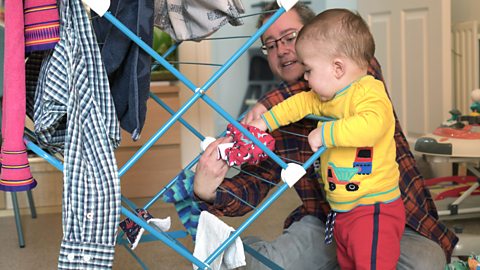
Using sounds for engagement
Clapping games and rhythm. videoClapping games and rhythm
A film showing how parents can encourage simple clapping games to help children listen out for rhythm and increase participation in interactions.
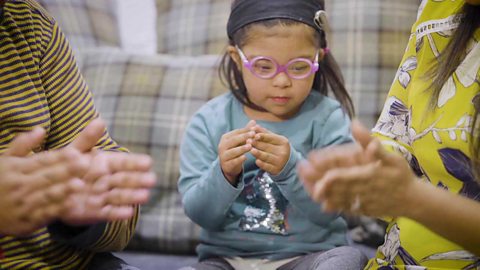
Making noise together. videoMaking noise together
A film showing parents how pots and pans and simple shakers can be used for gaining children's attention in play.
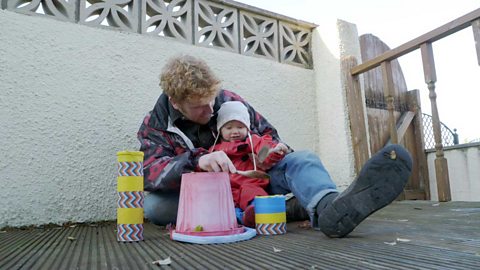
Environmental sounds
Sensory walks. videoSensory walks
A film showing parents how to take their child on a sensory walk, encouraging them to listen out for sounds in their environment.
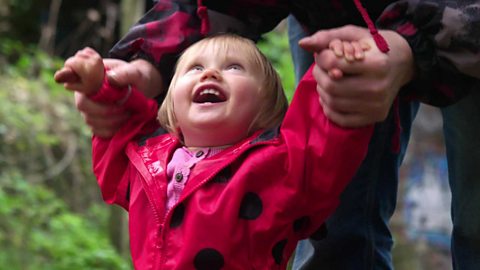
Listening for sounds. videoListening for sounds
Talking to baby about sounds as you explore the world can encourage them to listen and connect the words you say with the sounds they hear.
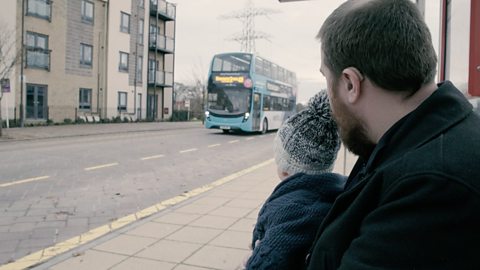
Understanding and expression
First words
What first words are common and why?
An article explaining how first words develop and which are likely to be children's first words.
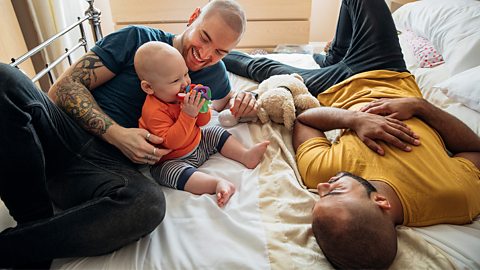
Naming body parts. videoNaming body parts
A film modelling naming body parts for children. Can support a single word understanding target for body parts.
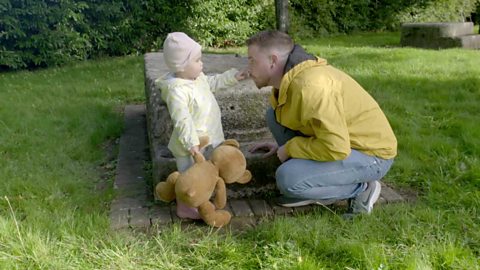
Early comprehension
Pointing and naming. videoPointing and naming
A film showing how parents can follow children's attention to name things in their environment. Can be used to support a single name understanding target.
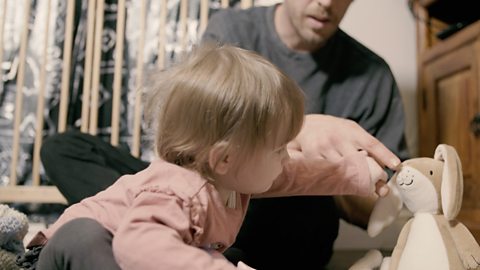
How actions support first words. videoHow actions support first words
A tips film explaining how actions and gestures can help with understanding word sounds.
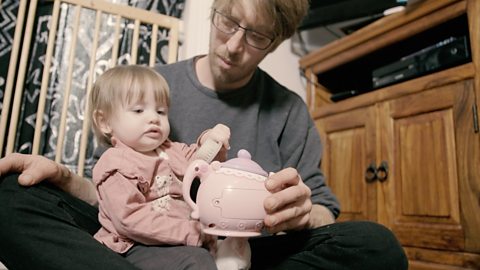
Early sentence construction
Helping toddlers build longer sentences. videoHelping toddlers build longer sentences
A film explaining the recasting technique to help correct mistakes and build longer sentences. Can be useful to support early sentence construction, making phrases with multiple words and building comprehension.
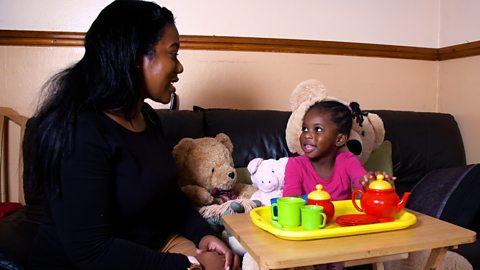
Using verbs at the playpark. videoUsing verbs at the playpark
An activity to support embedding verbs into everyday situations - would support a verb use target.
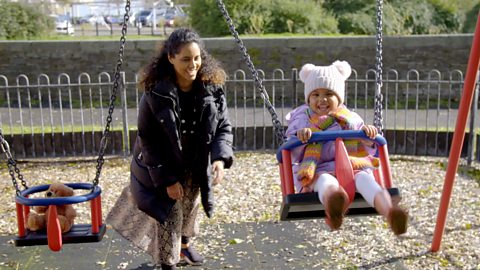
Practising talk about the past and future
The importance of using different tenses. videoThe importance of using different tenses
A film explaining how getting children to think about the past and future can improve their communication skills. Includes activity suggestions to encourage discussion of the past and future.
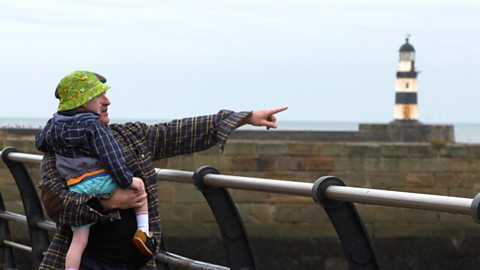
Talking about the past. videoTalking about the past
A film modelling how parents can ask lots of questions to encourage children to talk about the past. Would support comprehension targets for past tense and early sentence construction at the 4 +word level
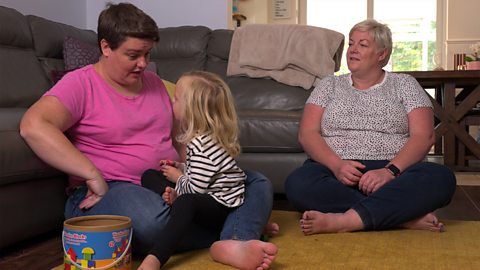
The tomorrow game - talking about the future. videoThe tomorrow game - talking about the future
A film showing how parents can encourage talk about future events by asking lots of questions.
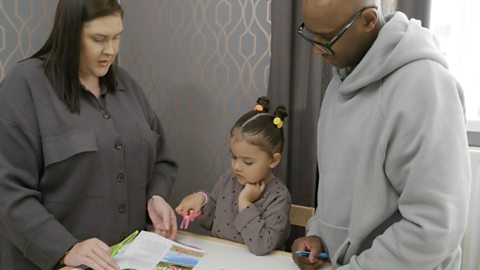
Understanding conceptual language
Concept of opposites. videoConcept of opposites
A film modelling parents talking to their children about opposites like big and small, open and shut and on and off. Good for helping consolidate early concept words.
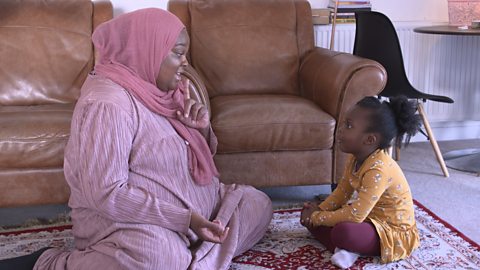
Concept of textures. videoConcept of textures
A film showing parents how they can build language for textures into sorting laundry with their child, showing how conceptual language can be built into everyday situations.
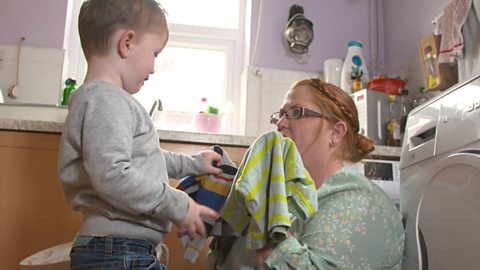
Expressive language
First words
What's in the bag? videoWhat's in the bag?
A film demonstrating a 'what's in the bag?' game, along with explanations of how the game can be adapted for different abilities. Would support early first words targets.
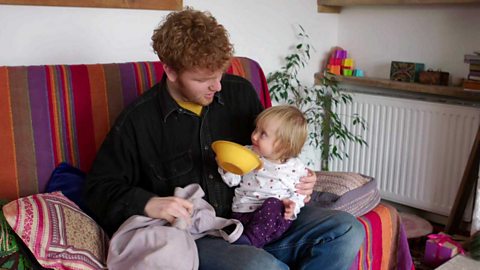
Bathtime words. videoBathtime words
A film modelling how bathtime routines can offer an opportunity for children to learn early words.
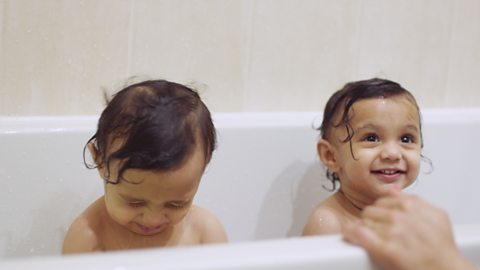
Sharing books. videoSharing books
Books can be great props to support children's first words.
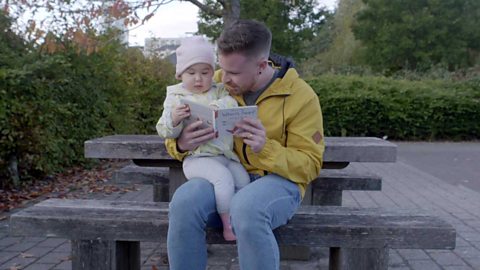
Understanding of 1-2 word level
Expanding on single words. videoExpanding on single words
An explanation of how parents can expand on their children's single words to model short phrases, adding just one or two words when repeating back to them.
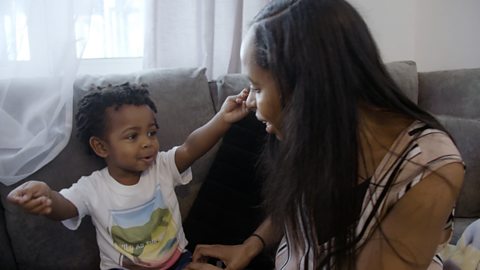
Listening to instructions. videoListening to instructions
A film demonstrating how activities like pegging out washing can help children practise following simple instructions.
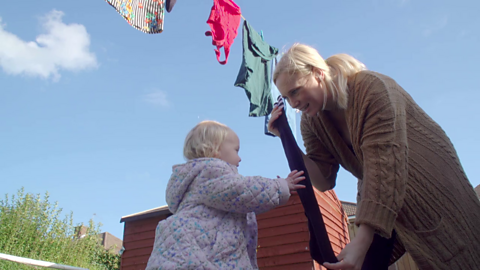
Making choices at breakfast time. videoMaking choices at breakfast time
Offering choices can help get children to expand upon single words.
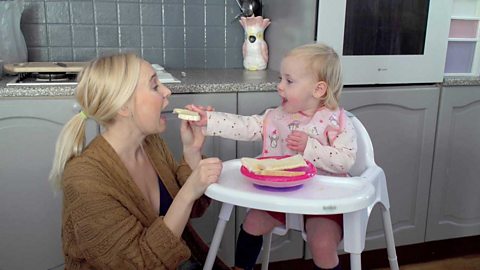
Early sentence production
Helping children build longer sentences. videoHelping children build longer sentences
An explanation of how to recast and expand upon children's words to model longer phrases and sentences. Suitable for early sentence production targets.
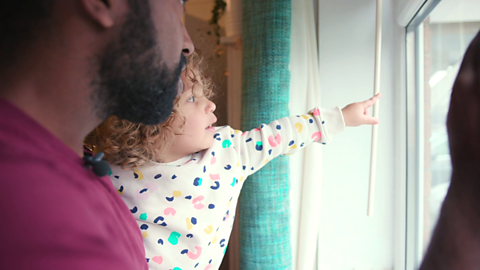
Speech
Speech sounds - parents' questions answered
Ideal for referring parents to where children have specific speech sound issues.
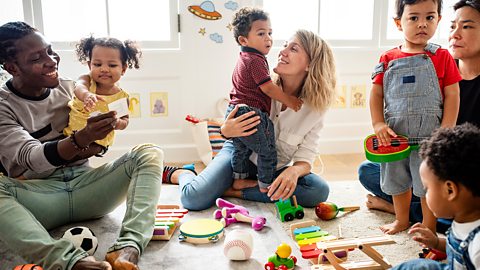
Early sound play - blowing raspberries. videoEarly sound play - blowing raspberries
Film modelling blowing raspberries as an early sound to make with children – would support a non-speech sound making target.
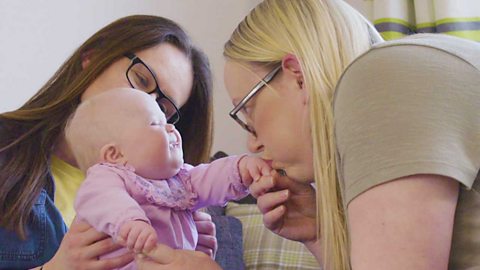
Introduction to phonological awareness. videoIntroduction to phonological awareness
Two films explaining phonological awareness to parents. Useful for speech targets.
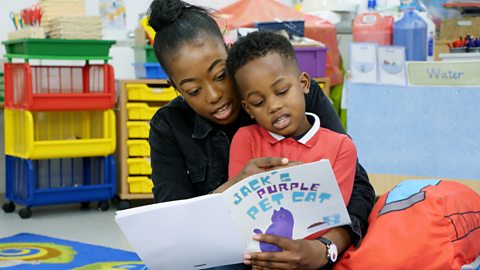
Rhyming. videoRhyming
A demonstration of the importance of rhyme to children's phonological awareness.
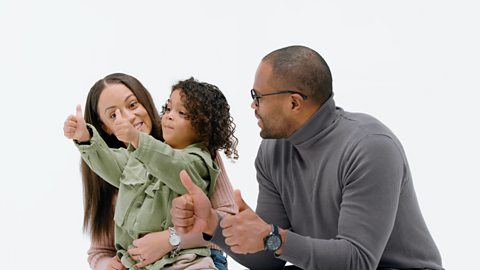
Sound sorting game. videoSound sorting game
An activity to challenge children's understanding of the initial sounds in words.
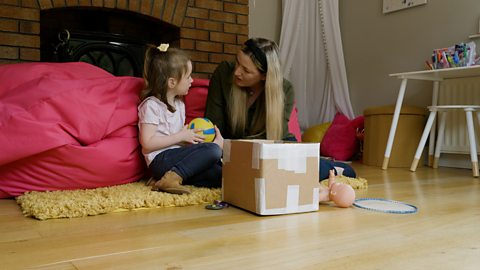
General useful links
Tools for Talking - key language tips by children's ages. collectionTools for Talking - key language tips by children's ages
Our Tools for Talking clips provide factual information on supporting early communication in an accessible way - great for sharing with parents and carers attending speech and language therapy appointments.
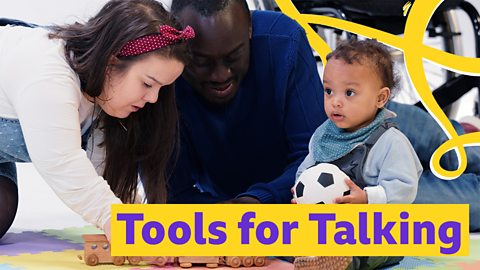
The Speech Lab - key language tips in action. collectionThe Speech Lab - key language tips in action
The Speech Lab films are great for illustrating the science and facts behind early communication development - great for explaining to families why you have set certain targets to work on.
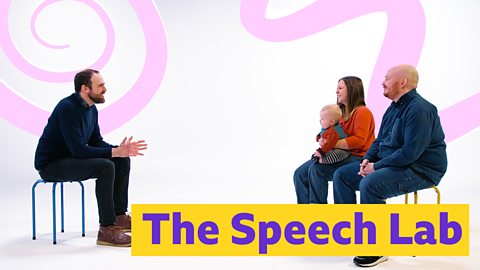
Activities for language learning. collectionActivities for language learning
The activities page can be used to signpost families to relevant games and activities that will help build their child’s communication skills. Activities are listed by age range for typical communication ability, but may be used by families with children of any age at your discretion.
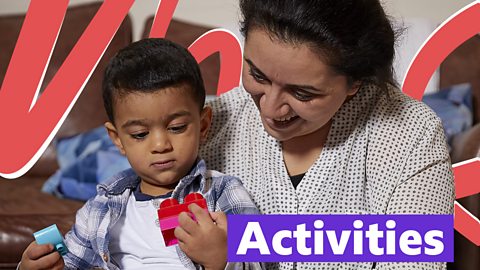
SEND and Speech and Language. collectionSEND and Speech and Language
Information and advice for families on a range of conditions that can affect children's speech and language abilities.
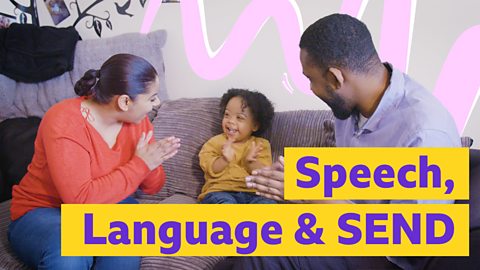
Tiny Happy People social channels
The Tiny Happy People Instagram and Facebook channels are a really accessible way for parents to access our advice on speech and language development and a range of other parenting topics, including support for their own wellbeing.
Why not show parents the channels and suggest they follow us?
We also have a Tiny Happy People Facebook group for professionals working with families to share best practice and find resources to help them from across the Tiny Happy People website - why not join yourself?

